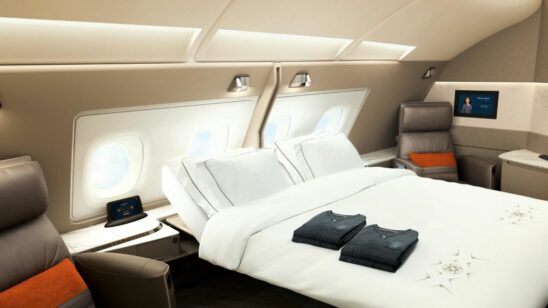
How small thinking can limit an independent hotel
[vc_row][vc_column][vc_column_text]Revenue management systems are used by leading hotel brands around the world. However, it can be argued that smaller and independent properties in Indonesia need the technology even more than larger hotels given that limited room volumes mean every pricing decision counts. With the right investment in processes, technology and staff, it’s possible for small-scale independent hoteliers to not just survive but thrive in today’s competitive hotel environment.
It goes without saying that independent hoteliers in the Maldives and across the region often find themselves in challenging situations: they often don’t have the resources to compete with the large global hotel chains in terms of marketing budgets and investment in third party booking channels, or have the well-recognised brand name that goes hand-in-hand with these activities. Smaller, independent hotels frequently have fewer resources compared to larger chain hotels, and often do not have a dedicated revenue manager.
This means that the revenue strategy is left up to the general manager, director of sales and marketing, reservations manager, or even the accountant – all of whom already have very busy schedules filled with other responsibilities. This lack of a dedicated resource and isolated operating systems mean that rooms are often either overpriced or underpriced, which ultimately turns guests away or secures guests at a lower-then-ideal booking rate for the hotel.
Every room counts in smaller scale independent hotels, which means that pricing rooms incorrectly has a much more noticeable impact on the property’s overall revenue performance. If there is a pricing error at a larger hotel, it’s easier to “bury” the rate mistake or absorb any short-term revenue loss due to a greater volume of rooms and bookings.
Similar to larger hotels, small, independent properties are constantly generating data – such as that used in developing demand forecasts. Hotel data comes from a multitude of sources, changes rapidly, and is critical to making proper pricing decisions. A good forecast as part of an ongoing revenue management program can assist room rate decision making, staff allocation, property maintenance and a range of critical hotel operations.
Using data and analytics from an accurate forecast is the best way to determine marketing and pricing strategies for the future. Data should be detailed and be both historical and forward-looking. Historically, the data should include (at least) the number of occupied rooms, coupled with revenue by market segment per day. Also, hoteliers need to ensure they include the number of rooms and revenue on the books by day (and by market segment) for at least the next 90 days.
If data is collected every day it will allow the hotel to establish simple booking pace forecasts by segment and day of the week, from which they will be able to compare it to historical data. If done consistently, this will allow hoteliers to quickly make any changes when demand picks up and tweak their strategies and decisions accordingly.
One of the biggest challenges with manual revenue management practices is the inability to collect quality data in a timely manner while being able to use it before it is obsolete. Put simply, without automation, it is difficult to compile and analyse all this continuous information accurately and effectively. Global hotel brands equip their properties with revenue management technology for this reason.
Automated revenue systems and technologies allow revenue managers to move beyond data collection to focus on revenue strategy, leveraging every opportunity in good times or working with the sales and marketing teams to stimulate demand and lock in business for any softening in market conditions. Hotels with a revenue management system simply have a better aggregation of data, leading to better insights and more granular forecasts earlier on, which ultimately delivers better performance.
Importantly, a revenue management system can also help independent hoteliers balance the right business mix and address length of stay issues. Many independent hotels fall into the trap of focusing on peak nights and often accept lower-rated business when it isn’t needed, which simply trades down revenue. With fewer rooms in smaller scale independent hotels, managing booking pace and capturing optimal reservations by accepting the most valuable demand across arrival dates and lengths of stay is critical to maximising revenues.
So, as an independent hotelier, how do you compete with “the big boys”? How can you gain access to the same set of tools and insights so that you can provide the maximum return to your asset owner in good or challenging times? It’s simple: get a revenue management system and even the playing field. Time is today’s most valuable currency, and if you are paying a talented revenue manager to compile data into endless spreadsheets and siloed reports, frankly you are wasting your money.
Revenue management systems are best viewed as an investment in an essential business technology platform or tool for your business, rather than a “nice to have” expense. The insights, efficiencies and operational benefits are significant, driving measurable performance as well as profitability.
Hotels of all types typically experience 3 to 8 percent uplift in RevPAR when they move to an automated revenue management system, and in IDeaS’ experience, investment in a revenue management system generally pays back within a four-month window, delivering both tangible and intangible benefits to the independent hotelier.
To help hoteliers in the Maldives delve deeper into better revenue management tactics, Hotelier Maldives will be holding the second edition of its Revenue Management Concept Workshop this year. Scheduled to be held December 4 and 5, the workshop will have an overview of revenue management and also focus on market segmentation, pricing, forecasting, revenue management tactics, channel management, strategy setting and implementation, amongst other important topics.
The two-day workshop, organised by Hotelier Maldives and IDeaS, will be facilitated by Tracy Dong, the Lead Advisor of Asia Pacific region at IDeaS Revenue Solutions – a SAS Company based in Singapore. For enquiries about the workshop, please reach out to Bunaanath Yoosuf (via email: bunaanath@167.172.155.58, or mobile: +960 7910848, +960 7910858]. To learn more and register your attendance, please visit drive.ideas.com/rmmaldives17.[/vc_column_text][/vc_column][/vc_row]






